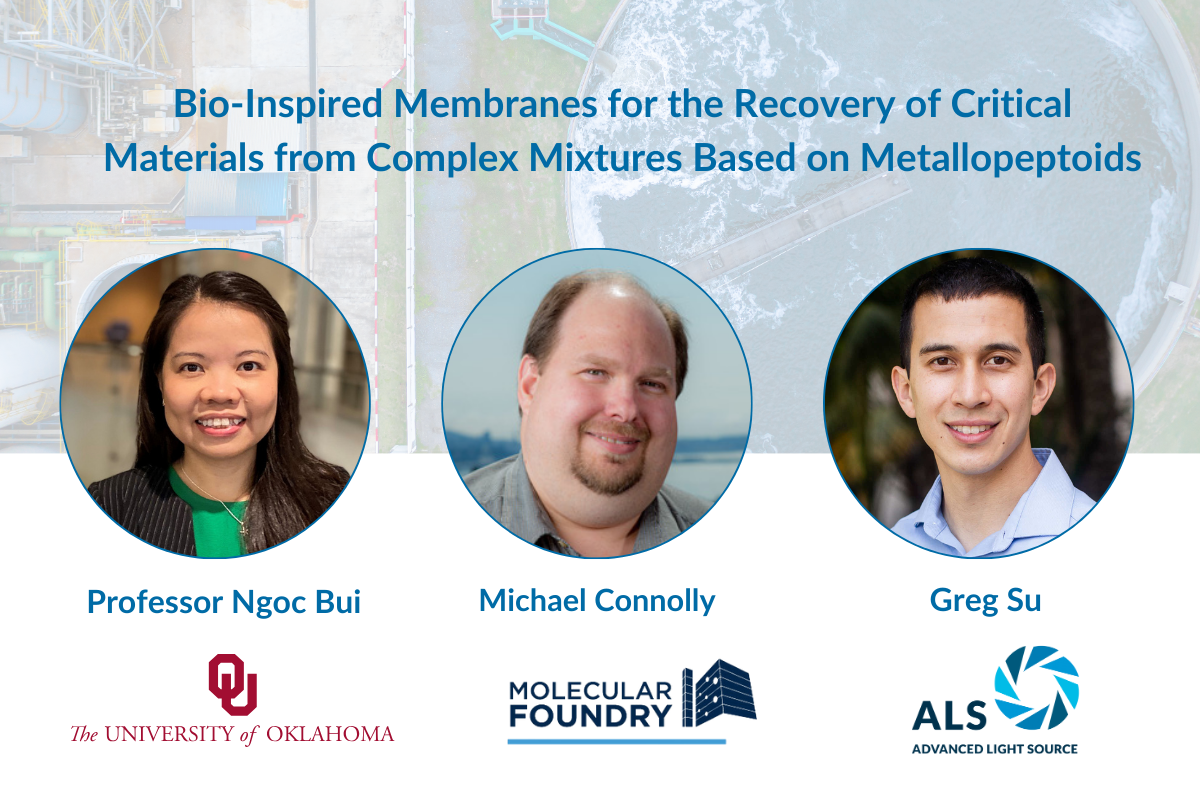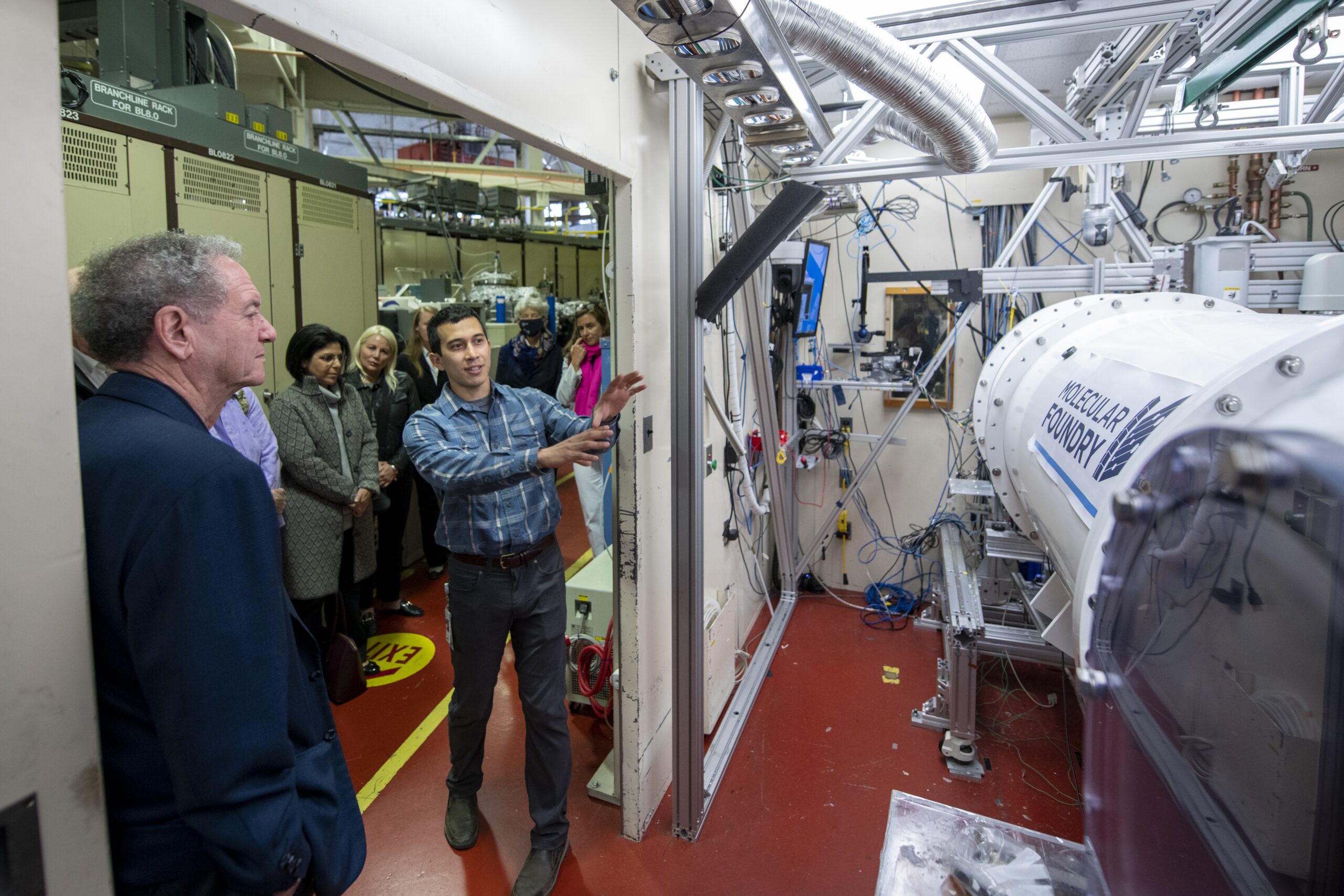
Six years ago, Professor Ngoc Bui was a postdoc fellow at the Molecular Foundry and built her research in self-assembled supramolecular materials for water remediation. Today, she has teamed up with Michael Connolly, a scientific engineer at the Molecular Foundry’s Biological Nanostructures Facility, and Gregory Su, a beamline scientist at the Advanced Light Source (ALS), to launch an innovative new project called “Bio-Inspired Membranes for the Recovery of Critical Materials from Complex Mixtures Based on Metallopeptoids.”
The project was recently funded by a Lab Partnership Grant from the Department of Energy’s Established Program to Stimulate Competitive Research (DOE EPSCoR), which supports research in states and territories with limited DOE funding to boost their national competitiveness. The grant awarded $36 million to support energy-relevant research in underrepresented regions of the country and provides critical access to Lawerence Berkeley National Lab’s expertise and facilities, including the ALS and Molecular Foundry. The effort aligns with the Berkeley Lab’s commitment to inclusion, diversity, equity, and accountability in scientific research.
The project aims to tackle the pressing challenges of separating and recovering critical materials from complex mixtures, leveraging x-ray scattering and x-ray absorption spectroscopy at the ALS. Additionally, the team is developing novel binders by harnessing Connolly’s deep knowledge of metal-ion binding and peptoid science, synthesizing thousands of unique compounds to target specific metals.
Peptoid materials, traditionally used in biotechnology and pharmaceuticals, are now being adapted for practical applications, especially in membrane separation technologies. Su brings his specialization in studying and developing polymers and soft materials for sustainable applications, utilizing advanced synchrotron techniques and simulations to understand molecular interactions and their impact on material performance to this project. The researchers will study bio-inspired membranes based on peptoid science to recover rare earth elements from wastewater streams and other industrial processes. “This approach is critical, given the societal demand for effective methods to recycle valuable materials such as cobalt and to address the water-energy nexus,” said Bui. By focusing on cross-industry impacts, the project aims to support a circular economy, repurposing valuable ions from waste into sectors that need them.
An assistant professor in chemical, biological, and materials engineering at the University of Oklahoma, Bui is collaborating closely with two PhD students to develop this project and advance it at the ALS and the Molecular Foundry. Partnerships between the two facilities serve as the backbone of this type of research as the Molecular Foundry provides bio-membrane separation technologies that can be studied in tandem with x-ray scattering at the ALS. Additionally, the project aims to strengthen diversity in Science, Technology, Engineering, and Math (STEM) by fostering strong partnerships with underrepresented institutions like the Univeristy of Oklahoma, promoting cross-institutional knowledge-sharing.

Having now secured a four-year grant, the team is poised to focus on enabling peptoid applications for ion detection and recovery. The long-term goal is to establish a model that can be replicated for critical materials recovery across various industries. The anticipated outcomes include advancements in material recovery technologies and a significant positive impact on environmental sustainability. By developing new methods for detecting and separating critical materials, the project aims to address the urgent need for accountability in resource management. As the project unfolds, it has the potential to enhance materials science and foster a sustainable future through innovative solutions in material recovery and environmental sustainability. Stay tuned for further updates on this exciting initiative!